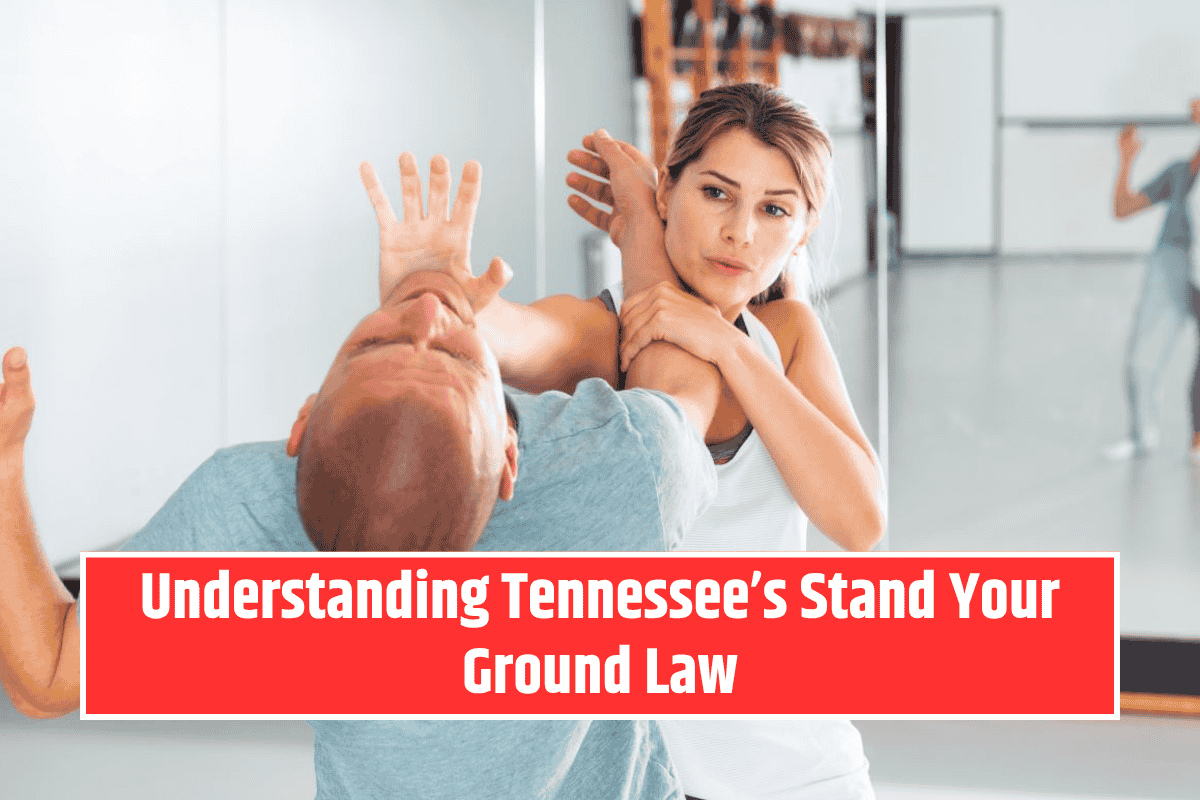In the United States, self-defense laws are designed to protect individuals who act to defend themselves or others from immediate harm. Traditionally, these laws followed the principle that lethal force should be a last resort, only used when there was no safe way to escape or avoid the danger.
However, in recent years, many states, including Tennessee, have adopted “Stand Your Ground” laws that change the way self-defense cases are handled, especially in public spaces. These laws have sparked debates on their implications for personal safety and the legal system. Let’s explore what Stand Your Ground laws are, how Tennessee’s law works, and the concerns that come with it.
What Are Stand Your Ground Laws?
Stand Your Ground laws allow individuals to use deadly force if they are faced with a threat, even if they could have retreated to avoid the confrontation. Unlike older laws that required a person to attempt to escape from a dangerous situation if it was safe to do so, Stand Your Ground laws eliminate that duty.
This means that a person can defend themselves with deadly force in a public place without first trying to back away from the situation, even if retreating would be an option.
The key difference here is that traditional self-defense laws were based on the “duty to retreat,” which urged individuals to avoid violence if they could do so safely. In contrast, Stand Your Ground laws allow for forceful self-defense, particularly when the person feels their life or safety is at risk.
When it comes to defending oneself in one’s own home, a principle called the Castle Doctrine applies. This legal doctrine allows individuals to use force, including deadly force, without the duty to retreat inside their home, making it clear that your home is considered a place where you can stand your ground.
Tennessee’s Stand Your Ground Law
Tennessee, like many other states, has adopted Stand Your Ground laws, offering greater protections for individuals who use force in public. Under Tennessee’s law, you are allowed to use deadly force in self-defense without the obligation to retreat, as long as two key conditions are met:
- You are not involved in illegal activity.
- You are in a location where you have the legal right to be.
This means that even if it’s possible to avoid the confrontation, you don’t have to back down if you believe you are facing an imminent threat. This law applies to public spaces such as streets, parking lots, and businesses, providing individuals with a broader scope of legal protection when acting in self-defense.
Legal Concerns and Investigations
While Tennessee’s Stand Your Ground law gives people more freedom to use force in self-defense, it also raises important legal concerns. One of the more controversial aspects of the law is that it limits law enforcement’s ability to investigate or arrest someone who claims they acted in self-defense.
This makes it harder to fully understand the circumstances of these incidents and verify whether the use of force was justified.
Critics of the law argue that this could lead to abuse of self-defense claims, particularly in situations where the facts are unclear. Without the duty to retreat, there is concern that people may escalate conflicts more easily, potentially resulting in deadly violence when peaceful solutions could have been found. This aspect of the law has sparked debates about public safety, accountability, and fairness in the legal system.
The Bigger Picture: National Trends and Public Safety
Tennessee’s Stand Your Ground law is part of a broader trend across the United States, where similar laws have been enacted in many states. The goal of these laws is to protect law-abiding citizens who feel threatened in public spaces.
However, they also raise concerns about whether these laws may encourage unnecessary violence or create situations where confrontations could escalate more easily.
As the national conversation on self-defense laws continues, it’s important for people to understand how Stand Your Ground laws function and what their potential consequences could be.
While these laws offer greater protection for individuals in dangerous situations, they also pose challenges in terms of accountability and ensuring that justice is served in cases involving the use of deadly force.
Stand Your Ground laws, especially Tennessee’s, have significantly altered the way self-defense is viewed in public spaces. These laws provide individuals more freedom to act in defense of themselves without the need to retreat, but they also bring with them a host of legal and ethical challenges.
As the debate continues, it remains important for people to understand the intricacies of these laws and consider both their potential benefits and the concerns they raise regarding public safety and legal fairness.












